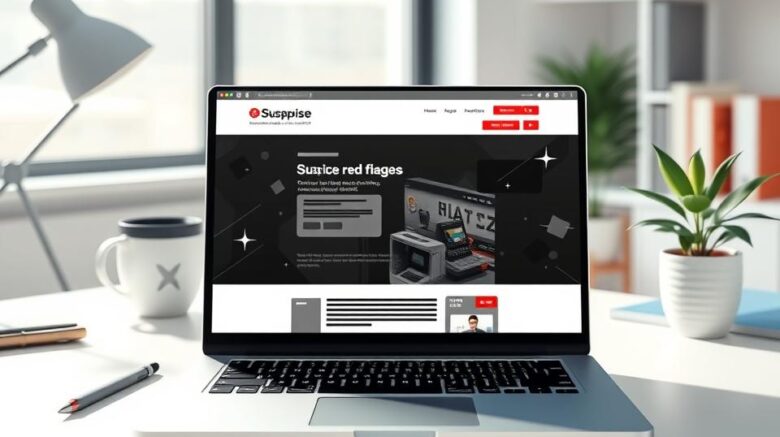1on1 Marketing: Reveal Tailored Customer Engagement.
Ever ponder why some brands connect deeply with their audience while others falter? The secret lies in 1on1 Marketing, a game-changing method that turns generic marketing into personalized experiences. By zeroing in on personal preferences, it forges a bond that mass marketing simply can’t replicate. This approach shifts the focus from mass marketing to tailored strategies that speak directly to each customer’s heart.
By adopting 1on1 Marketing, businesses can build more meaningful connections. They design strategies that genuinely resonate with their audience. This section explores the core of 1on1 Marketing, showing how it enables brands to engage with customers on a more personal level, official company website 1 on 1.
How Marketing Strategies Have Transformed
Over time, the marketing landscape has experienced a dramatic shift. At first, marketers relied on broad-brush strategies aimed at average customers. Now, the expectation is for engagement through tailored conversations. This shift highlights the necessity to see customers as individuals rather than as a homogeneous mass.
With marketing’s evolution, it’s clear that generic tactics no longer cut it. Today’s methods aim on building real relationships rather than simply selling products. By leveraging data insights, marketers shift to tactics that address each customer’s unique preferences.
This evolution not only deepens customer connections but also boosts brand loyalty and retention. In a world where consumers face endless choices, brands that offer personalized experiences stand out. They craft spaces for dialogue and engagement, ensuring customers feel appreciated.

| Strategy Type | Characteristics | Example |
|---|---|---|
| One-Size-Fits-All | Broad messaging, wide reach | Generic ad campaigns |
| Tailored Tactics | Individual focus, precision targeting | Custom product suggestions |
Personalization’s Role in B2B
The B2B marketing landscape is rapidly changing, making personalization essential. Marketers aim to boost conversion rates through personalized 1:1 marketing. Studies show that many see this method as key to keeping customers. In a rapid-fire environment, engaging audiences effectively is vital.
Personalized marketing tackles the challenge of grabbing attention. It ensures content resonates with each customer’s unique preferences. This focus on individual experiences helps brands stand out in crowded markets.
As touchpoints multiply, the demand for personalization increases. Companies embracing tailored tactics meet needs and forge lasting bonds. This approach can give a significant edge in the competitive market today.
Defining One-to-One Marketing
One-to-one Marketing focuses on customizing experiences for each customer. It uses data insights to craft personalized engagement strategies. This approach creates strong customer connections by focusing on individualized experiences.
For example, a coffee shop where the barista remembers a customer’s favorite order illustrates one-to-one marketing. This simple gesture demonstrates how attending to preferences drives satisfaction. It turns a simple transaction into a memorable experience, building loyalty.
To implement one-to-one marketing, companies must deeply understand customer data. They analyze behaviors and preferences to customize messaging. This guarantees marketing efforts hit the mark with distinct tastes, yielding stronger connections and greater satisfaction.
As businesses seek personalized engagement, they realize customization is essential for lasting success. Those who excel in creating individualized experiences gain significant benefits from their efforts.
Why Personalized Engagement Pays Off
Personalized customer engagement brings numerous benefits to modern brands. It dramatically increases satisfaction by delivering experiences that align with individual needs. Studies show that 80% of consumers prefer to buy from brands that offer personalized interactions. This highlights the significant impact of customized marketing.
Loyalty programs that incorporate personalization tend to retain customers better. By targeting distinct pain points and tastes, companies foster a sense of being valued. This link promotes repeat business, increasing profits.
Personalized marketing also leads to higher conversion rates. Custom suggestions and targeted messaging steer customers from consideration to purchase. Highlighting the benefits of personalized marketing enhances brand perception and positions businesses for success in a competitive market.
| Benefit | Description | Impact |
|---|---|---|
| Customer Satisfaction | Personalized experiences enhance overall customer happiness. | Higher chances of repeat purchases. |
| Loyalty Programs | Custom offers boost customer engagement. | Stronger retention and brand loyalty. |
| Conversion Rates | Targeted content spurs customer actions effectively. | Growth in sales and revenue. |
Personalization Challenges
Brands face numerous hurdles when aiming to implement personalized marketing. Collecting quality data is a primary obstacle. High-quality data is key for segmenting audiences effectively. Without this, campaigns miss the mark, squandering opportunities and resources.
Companies must balance personalization with broad messaging. Big enterprises struggle to keep a personal touch amid heavy automation. This risks eroding the personal connection customers value. – Marketing 1on1official company website 1 on 1
Small businesses face unique barriers too. They may lack clear messaging, limiting their personalization efforts. Acknowledging these hurdles is crucial for refining strategies and boosting engagement.
Tools Fueling Personalized Marketing
Innovative tech is reshaping personalized engagement. CRM systems are pivotal for managing customer data. They help businesses manage customer data, vital for creating tailored marketing experiences. A robust CRM system allows companies to grasp customer preferences and behaviors more deeply.
AI in marketing improves personalization by enabling more accurate targeting and automating tasks. ML algorithms analyze large datasets to reveal trends and behaviors. This enables marketers to refine their strategies. Automation reduces manual effort and heightens campaign impact.
Research shows 72% of marketers rely on CRM for personalization. 55% use automation tools to simplify campaigns. These technologies empower businesses to offer customized experiences on a large scale. This ensures marketing efforts connect with individual consumers, avoiding generic messages.
Merging these tools creates a dynamic engagement framework. The fast-evolving scene drives adoption of cutting-edge tech. These tools not only improve efficiency but also strengthen connections with their audiences.
Best Practices for Personalizing Marketing Efforts
Successful personalization rests on core best practices. They guarantee resonance and improved engagement. The core elements include:
- Segmenting Your Audience is essential for targeting specific groups based on common traits. It enables precision messaging, driving engagement rates.
- Using refined communication improves the customer experience. Uniform, relevant messaging across platforms builds trust and fosters ongoing engagement.
- Adopting experimental approaches, like A/B testing, is critical. It helps pinpoint the most impactful marketing approaches by comparing different messages and metrics.
Utilizing customer data is vital for understanding their behaviors and preferences. Regular analysis refines strategies. Following these practices enables brands to develop personalization that truly resonates with their audience.
Innovative Personalization Tactics
Creative marketing strategies are key to improving personalized experiences at every customer touchpoint. Brands now use personalized emails that match individual tastes, making messages more impactful. By studying past purchases, companies can suggest products that feel right, boosting sales.
Creating videos for specific audience segments is another smart move. It grabs attention and builds a strong emotional bond between the brand and its audience. Adaptive loyalty programs that align with behaviors reward meaningful interactions, enriching the journey.
| Creative Tactic | Description | Benefit |
|---|---|---|
| Personalized Emails | Emails designed to individual preferences and behaviors. | Boosts engagement and conversion rates. |
| Product Recommendations | Suggestions based on previous purchases and browsing history. | Enhances sales and customer satisfaction. |
| Segmented Videos | Video content customized for specific segments. | Strengthens brand connection and engagement. |
| Adaptive Rewards | Rewards systems that adapt to individual behaviors. | Drives loyalty and repeat business. |
Brands can gain a lot by integrating unique offers across different platforms like social media, emails, and in-app notifications. Each interaction is a chance to show the brand’s dedication to personalized marketing. This creates unforgettable experiences that help the brand stand out in a busy market.
Emerging Trends in Personalized Marketing
The world of 1on1 marketing is rapidly changing, driven by the latest marketing trends. Marketers will use AI to create personalized campaigns that meet individual needs. This approach boosts marketing success and builds stronger customer connections by delivering the right content at the right time.
Omnichannel experiences are another major trend. Customers now expect a smooth journey across different platforms, from social media to emails. Brands must maintain uniform messaging to satisfy these demands. Knowing interaction points helps craft a cohesive journey, enhancing loyalty.
Adapting to these shifts, ethical data practices will become essential for maintaining trust with consumers. With growing concerns over data privacy, marketers must be transparent and responsible with data. Prioritizing ethical practices meets regulations and builds trust, paving the way for loyal relationships in one-to-one Marketing’s future.
